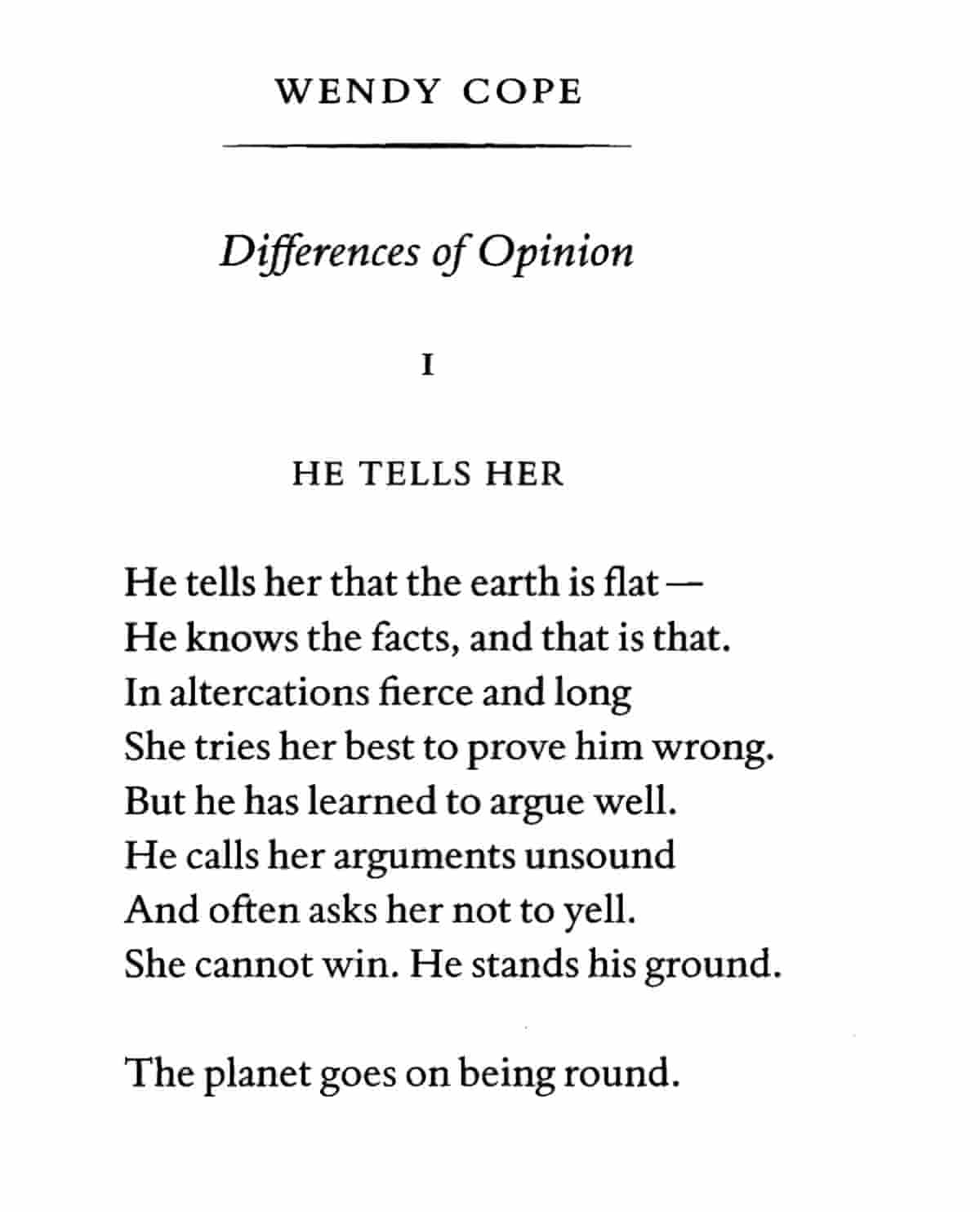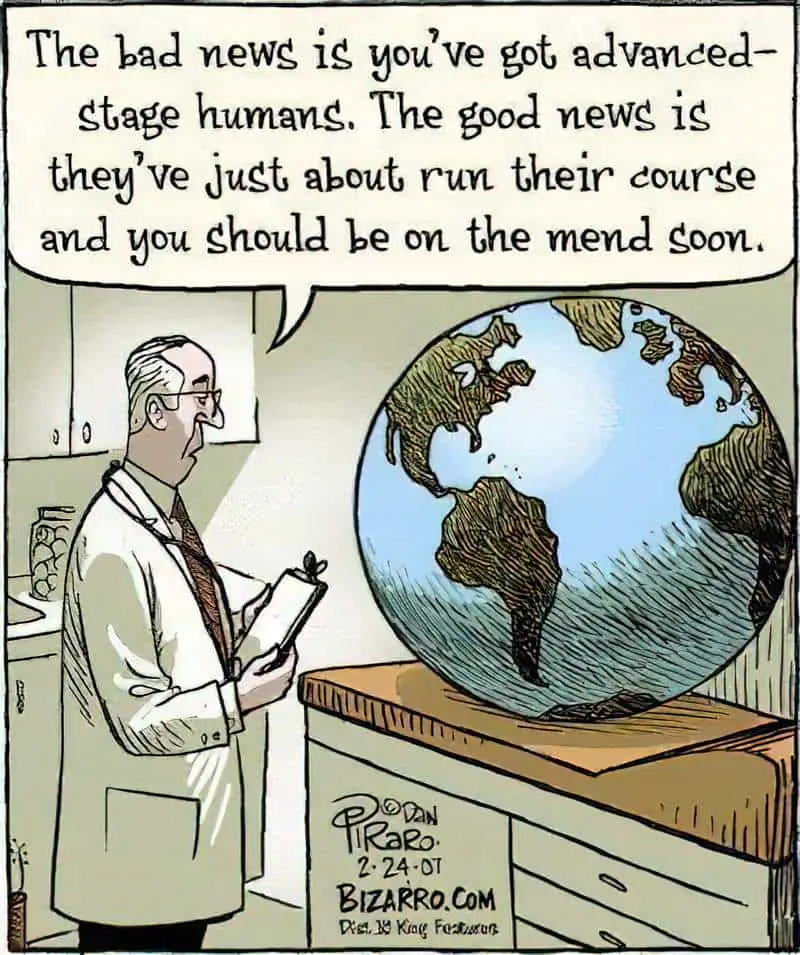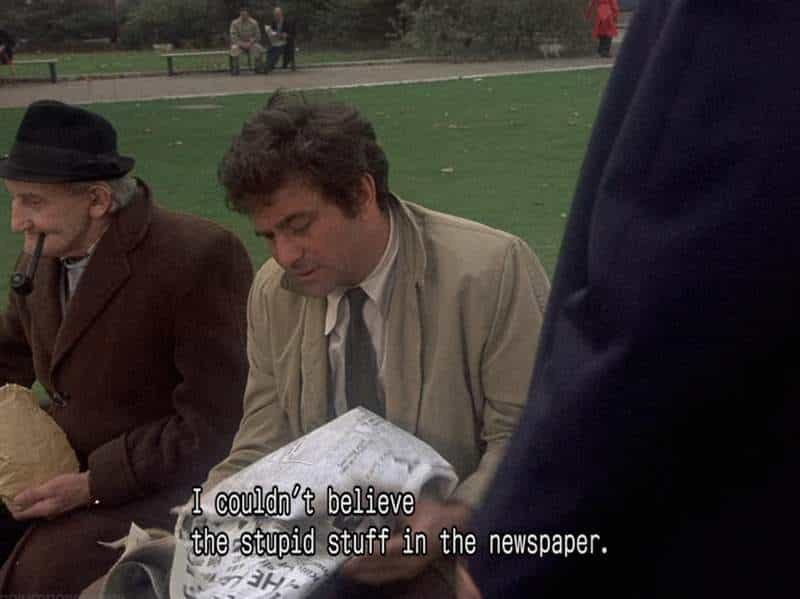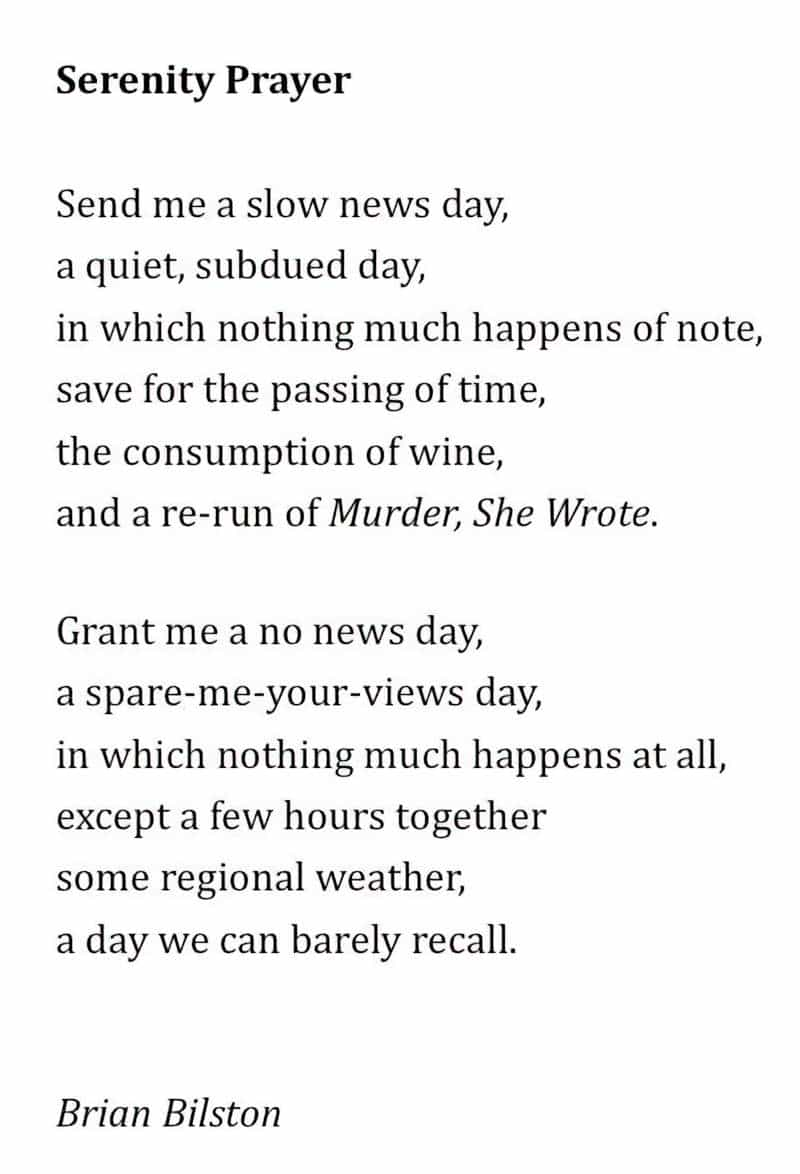“The Bad News” is a short story by Canadian author Margaret Atwood, included in Moral Disorder and Other Stories (2006).
These interconnected stories feature a woman called Nell at various times in her life. The stories are not arranged in chronological order so you can dip in and out.

MORAL DISORDER BY MARGARET ATWOOD
- “The Bad News“
- “The Art of Cooking and Serving“
- “The Headless Horseman“
- “My Last Duchess“
- “The Other Place“
- “Monopoly“
- “Moral Disorder“
- “White Horse“
- “The Entities“
- “The Labrador Fiasco“
- “The Boys at the Lab“
There’s a long tradition of fiction which explores the difference in morality between the rich and the poor. More recently I’m noticing a similar moral divide: between those who care and those who don’t. The White Lotus explores this divide in Seasons One and Two. In that TV show, the fate of characters is independent of whether characters care or not. In fact, caring deeply can be your downfall, leading tragically to a cascade of misfortune in the lives of others.
More subtly, some people seem to care whereas others care too much, and ― as in Atwood’s story ― can only face getting out of bed each morning if they distance themselves from the news entirely.
Margaret Atwood illuminates this character difference by creating a husband and wife with different approaches to the daily news: The husband relishes it, needs it to get going in the morning. The wife avoids it.
That’s all well and good, and the two could live comfortably, except the husband has a secondary need: He requires someone to offload on after reading the terrible news. If his wife won’t read it herself, he must tell her about it. Now the pair are retired, spending days together, so that person is, by proximity and circumstance, the wife.

DOES NELL EQUAL MARGARET ATWOOD IN THE MORAL DISORDER STORIES?
If you’re reading this collection from start to finish, this is the first time you meet Nell. I find it almost impossible not to read these stories as autobiographical. Nell feels like Margaret. This is exactly how I would imagine Margaret Atwood gets out of bed. Nell’s humour is Margaret Atwood’s own dry humour. Atwood is extremely well-read in big history, evidenced both in her work and what she says about her work in interviews, so I would imagine Margaret Atwood herself delving into her historically-fuelled imagination even as she sips on her morning coffee, bantering with her husband, who would have to be an intellectual equal.
But these stories are not autobiographical (except for the last story in the Moral Disorder collection). Reviewers have called this collection ‘deeply personal’, so let’s just say they are semi-autobiographical. In any case, Nell is the same vintage as Margaret.

MEN AND MARS, WOMEN AND VENUS
For anyone who subscribes to Mars and Venus gender ideology, Margaret Atwood’s short story provides a counterpoint. Basically, here’s the common wisdom I grew up with in the 1980s and 90s: When women come home from their day, they want to yak the ears off their husbands. The husband should listen (or pretend to) and avoid offering advice. She’s not after fix-it ideas. She just needs to vent. (When women aren’t ‘venting’, they’re ‘nagging’.)
In that best-selling book, once found face-out in every big box chain store, John Gray puts these gender stereotypes in more palatable terms for the cishet married masses:
Men go to their caves […] Women talk
He is stressed by the unsolved problems of his day and finds relief through forgetting them. […] She, however, wants to find relief by talking about the problems of her day.
Men need to remember that when women seem upset and talk about problems is not the time to offer solutions; instead she needs to be heard, and gradually she will feel better on her own.
When she says “I feel like you are not even here,” he says “What do you mean I’m not here? Of course I am here. Don’t you see my body?
Like their Martian ancestors, men pride themselves on being experts, especially when it comes to fixing mechanical things, getting places, or solving problems. These are the times when he needs her loving acceptance the most and not her advice or criticism.
Just as a man is fulfilled through working out the intricate details of solving a problem, a woman is fulfilled through talking about the details of her problems.
Remember, if a man needs to pull away like a rubber band, when he returns he will be back with a lot more love. Then he can listen. This is the best time to initiate conversation.
John Gray, Men Are from Mars, Women Are from Venus: A Practical Guide for Improving Communication and Getting What You Want in Your Relationships
(emphasis mine)
Basically, Gray is urging wives to avoid burdening their husbands before the husbands are ‘ready’ to listen. Yet the husband and wife dynamic of Margaret Atwood’s short story inverts the gendering of pop culture and features a husband who needs to burden his wife for venting purposes. The wife herself knows she is expected to listen.
That phrase of John Gray’s ― ‘on her own’ ― is doing a lot of invisible work. Men are off the hook from actually, properly listening to their wives. If wives don’t want advice and fix-its, he only needs sit through her chatter until she stops. Make reassuring noises, hug her, that sort of thing. But take her concerns seriously? That’s not Gray’s takeaway point. And if it’s in there at all, it’s very well hidden, overshadowed by advice such as this:
A woman has within herself the ability to spontaneously rise up after she has hit bottom. A man does not have to fix her. She is not broken but just needs his love, patience, and understanding.
John Gray, Men Are from Mars, Women Are from Venus: A Practical Guide for Improving Communication and Getting What You Want in Your Relationships
‘Patience’ implies the husband only needs sit through it, and is a word you see in advice for dealing with children. By ‘understanding’, Gray might leave readers with the impression that husbands must understand how different women are from men, not that men should understand why something is important to his wife, and why her concerns are to be taken seriously.
Yet ‘to be taken seriously’ is a fundamental human need.

“The Bad News” by Margaret Atwood is fiction, but the blow-by-blow details of a familiar morning scene can be read as a pushback against this very real cultural phenomenon, where men are encouraged by other men to put up with their girlfriends and wives, downplaying women’s concerns as the key to a happy relationship. “Happy wife happy life.” (Remember, the story feels like realism to the point where I found it difficult to believe it’s not something akin to Margaret Atwood’s own morning routine, to her own marital relationship.)

A FEMINIST TAKE
With Margaret Atwood you just know there’ll be a feminist take.
For me, Atwood’s “The Daily News” utilises a simple ― relatable and realistic ― gender inversion to illuminate how the popular imagination regards men, women and communication in romantic relationships.

In a nutshell: The things husbands need to talk about are considered culturally important, so important that their concerns occupy space on the front page of the newspaper. Meanwhile, wives internalise the culturally dominant message that listening to husbands whenever they are ready to talk is an act of love. After all, the world news is important. It affects everyone, right? Men’s morning chat is everyone’s concern.
“They just killed the leader of the interim governing council.”
“The Bad News” by Margaret Atwood. This snippet is deliberately and almost comically vague. Which leader? Which governing council? The addition of ‘interim’ is chef’s kiss. We can’t possibly care about something so devoid of context, so vague, and neither does the narrator, who hasn’t even had her coffee yet.
Each believes the other should respect this frequently reiterated set of how-to instructions, but they cancel each other out: if Tig must respect my need to wallow mindlessly, free of bad news, before the first cup of coffee, shouldn’t I respect his need to spew out catastrophe so he himself will be rid of it?
“The Bad News” by Margaret Atwood
Meanwhile, wives’ chat concerns women. Back to Mars and Venus. In John Gray’s culturally dominant and influential view of gender relations, if a wife wants (needs) to tell her husband all about the neighbour she bumped into down at the supermarket this afternoon, that would not ― culturally ― be considered a need-to-hear on the part of the husband. That would be ‘gossip’. Frivolous. Chit-chat.
In fact, the affairs of a neighbour are likely more impactful and relevant than details about the murder of the interim leader of a council, all happening on the other side of the world, and may as well take place in a completely different era cf. Margaret Atwood’s interludes regarding happenings in Ancient Rome.
We got through it. It means d*ck sh*t when it’s about any event you personally weren’t there for, as if you’d joined some WE club, pinned on some tacky plastic We badge, to qualify.
“The Bad News” by Margaret Atwood. The news makes Tig feel a part of something big, but Nell sees through the ruse. She’s lived long enough to see the patterns, history repeating, each leader as replaceable as the next, since Ancient Rome. Her take is indicative of a woman who has not spent her life in a bubble, but of a woman who has made the conscious decision not to ride the outrage wave.
There’s another reason for Nell’s decision to live in the moment: The disabilities of an ageing body require one to take one moment at a time, not just because everything takes longer (so you might as well live in it), but because the prospect of accumulated disabilities ― or the only alternative, death ― becomes pressing:
I thought […] I might get a cat again, for company. I no longer consider this an option. I’ll surely be half blind by then
“The Bad News” by Margaret Atwood
Notice the repetition of ‘not yet’. This is Nell’s mantra, reminding herself to live in the moment. It’s how the story will end.
The interludes into her own imagination and holiday memories seem Nell’s strategy to keep herself actively listening to a husband who says the same things every morning. (We are told she can read Tig’s mind. This isn’t literally true; she anticipates what he’s about to say because he says it so frequently.) Imagination is her coping mechanism. She’s listening, she’s contributing intelligently, but she’s adding to the scene privately. She eats ‘the actual toast’; she drinks ‘the actual coffee’. The coffee and toast and the wonderful aroma of the kitchen are real (actual) to her. The weird noise coming out of the fridge is real. Not the contents of Tig’s newspaper.
Margaret Atwood even takes the extra body-fat usually found on women and turned it into a woman’s strength rather than the culturally dominant take, that a softer body is a sign of women’s weakness:
He’s angular, he has less body fat than I do and therefore less capacity to absorb, to cushion, to turn the calories of bad news ― and it does have calories, it raises your blood pressure ― into the substance of his own body. I can do that, he can’t.
“The Bad News” by Margaret Atwood
Atwood has written elsewhere about the difference in our experience of time as we age. Nell has reached a time in her life when every moment is precious:
When you’re young, you think everything you do is disposable. You move from now to now, crumpling time up in your hands, tossing it away. You’re your own speeding car. You think you can get rid of things, and people too–leave them behind. You don’t yet know about the habit they have, of coming back.
Margaret Atwood

NEWS AS OUTRAGE ENTERTAINMENT
Aside from this gendered take, Margaret Atwood is of course saying something about the news cycle, and personal relevance, and our varying attitudes towards protecting our own mental health from the daily onslaught of what has become news-tainment.
A very good rule of thumb is that whatever Margaret Atwood is worried about now, that’s what the rest of us are going to be worrying about a decade from now or more.
Ezra Klein, introducing an interview with Margaret Atwood at The Ezra Klein Show
Since Atwood published this story, journalism has continued to suffer, rendering “The Daily News” all the more relevant today. Outrage equals clicks; clicks equal eyeballs for advertisers. This is familiar to us all by now.
If we take a look at things Margaret Atwood has written and said elsewhere, “The Bad News” makes complete sense as a summary of her late-middle-age world view:
I think that’s how we are, to a certain extent, as an entity on this planet, that if you tried to pay attention to everything that’s going on, especially now with this deluge of information that is available, your head would explode. And a lot of people have immediate lives that they have to tend to. [People] have stuff they have to deal with. And to try to take any sort of a wide or a long view is quite hard for a lot of people because their own lives are so immediate, immersive and stressed. So that’s part of the problem.
also from the interview with Margaret Atwood at The Ezra Klein Show (2022)
COWEN: So the worry is that Canadian newspapers would go away.
ATWOOD: They’re going away.
COWEN: Going away anyway.
ATWOOD: So are yours. [laughs]
Margaret Atwood in conversation with American economist Tyler Cowen (2019)
Last night I watched the weather channel, as is my habit. Elsewhere in the world there are floods: roiling brown water, bloated cows floating by, survivors huddled on rooftops. Thousands have drowned. Global warming is held accountable: People must stop burning things up, it is said. Gasoline, oil, whole forests. But they won’t stop. Greed and hunger lash them on, as usual.
Margaret Atwood, The Blind Assassin
Sanity is a valuable possession; I hoard it the way people once hoarded money. I save it, so I will have enough, when the time comes.
Margaret Atwood
The newspaper journalists like to believe the worst; they can sell more papers that way, as one of them told me himself; for even upstanding and respectable people dearly love to read ill of others.
Margaret Atwood
When asked for advice on finishing writing a novel with everything going on the world, Margaret Atwood advised the writer to stay away from too much news, and to treat writing as an escape doorway. By framing writing time that way, you can only look forward to it.
Does Social Media Leave You Feeling Angry? That Might Be Intentional from NPR (September 2022)





